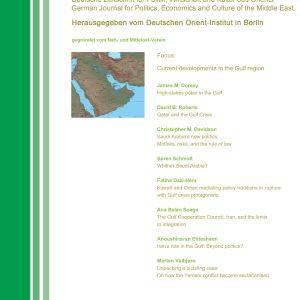Description
Modern Afghanistan has never been able to establish a powerful central state despite the country having experienced different political systems. The decades-long conflicts are rooted in the lack of an effective, communicative relationship between the centre Kabul and rural areas. The issue of rural locality has been intensified by a huge diversity in terms of ethnicity, religion, sect, language, and culture. Thus, rurality is not merely interpreted as locality, but as ethnicity, language, and religion. This article briefly investigates the concept of local governance in Afghan politics.
S. Asef Hossaini was born in Balkh, in the north of Afghanistan. He grew up as a refugee in Iran, studying philosophy and sociology at Kabul University before joining his master programme in public policy at the Willy Brandt School at the University of Erfurt. He defended his PhD in International Conflict Management in 2017 at the same school. He is currently an online editor.




Reviews
There are no reviews yet.